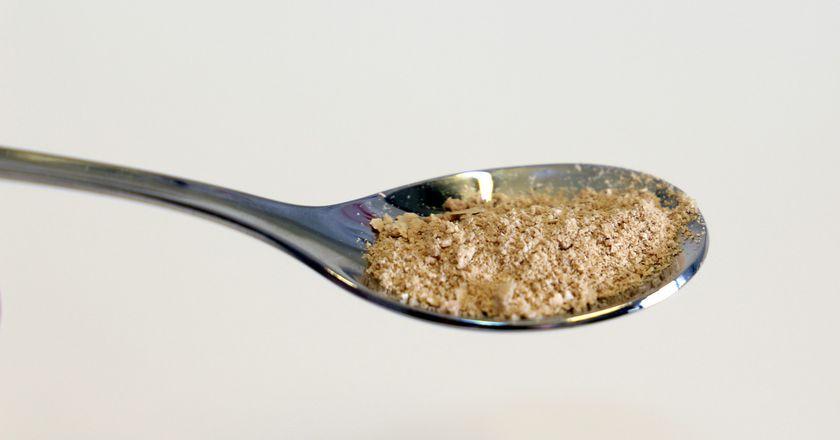How Food Created From Electricity Can Feed The World
A single-cell protein developed by Finnish scientists requires only four ingredients, is loaded with protein, and could help feed the world. Oh—and you don’t need anything special to grow it: no seeds, no sun, no farmland, and no additional water.
Updated May 26 2019, 8:21 p.m. ET
A new, single-cell protein developed by Finnish scientists requires only four ingredients, is loaded with protein, and could help feed the world. Oh—and you don’t need anything special to grow it: no seeds, no sun, no farmland, and no additional water.
This miraculous, edible product can be grown anywhere and has the capacity to eradicate hunger and malnutrition as it is further developed as food and animal feed. Just take some carbon dioxide, electricity, microbes and water and you’re all set. Here’s how it works.
Food from electricity? Most definitely.
The synthetic food was created as part of the Food From Electricity project, an initiative launched in August of 2016 that seeks to utilize electric power to create food. Central to the system is a bioreactor of microbes, water, nitrogen, phosphorous, sulfur and other nutrients that is kick-started by the addition of carbon dioxide and electricity. To get from there to a single-celled protein, scientists simply separate the material, pasteurize and dry it. And while the result isn’t exactly a gourmet dish, it’ll do in a pinch to feed people in need of proper nourishment.
The collaborative project between Lappeenranta University of Technology (LUT) and the VTT Technical Research Centre of Finland bore its first proverbial fruit with this breakthrough. The food can be made anywhere electricity is available—including off-grid power like solar.
"In practice, all the raw materials are available from the air,” Juha-Pekka Pitkänen, principal scientist at VTT, said in a press release. “In the future, the technology can be transported to, for instance, deserts and other areas facing famine. One possible alternative is a home reactor, a type of domestic appliance that the consumer can use to produce the needed protein."
The end of deforestation could be on the horizon.
Right now, scientists are spending two weeks to make a single gram of protein. But as the process is perfected, those involved in the research say this method of food production could be 10 times as efficient as photosynthesis. Used as animal feed or food for humans, the protein could mean the end (or extreme reduction) of deforestation for farmlands.
"In the long term, protein created with electricity is meant to be used in cooking and products as it is," Pitkänen said in a press release. "The mixture is very nutritious, with more than 50 percent protein and 25 percent carbohydrates. The rest is fats and nucleic acids. The consistency of the final product can be modified by changing the organisms used in the production."
Unfortunately, we’re about a decade away from the finished product.
The next phase of the project is pilot production: the process of creating enough of the material for development, testing and commercialization.
"We are currently focusing on developing the technology: reactor concepts, technology, improving efficiency and controlling the process,” said LUT professor Jero Ahola in a press release. “Control of the process involves adjustment and modeling of renewable energy so as to enable the microbes to grow as well as possible. The idea is to develop the concept into a mass product, with a price that drops as the technology becomes more common. The schedule for commercialization depends on the economy."
It could take a decade for the process to be perfected and ready for mass consumption. But when it comes to feeding the planet, I’d say it’s more than worth the wait.

